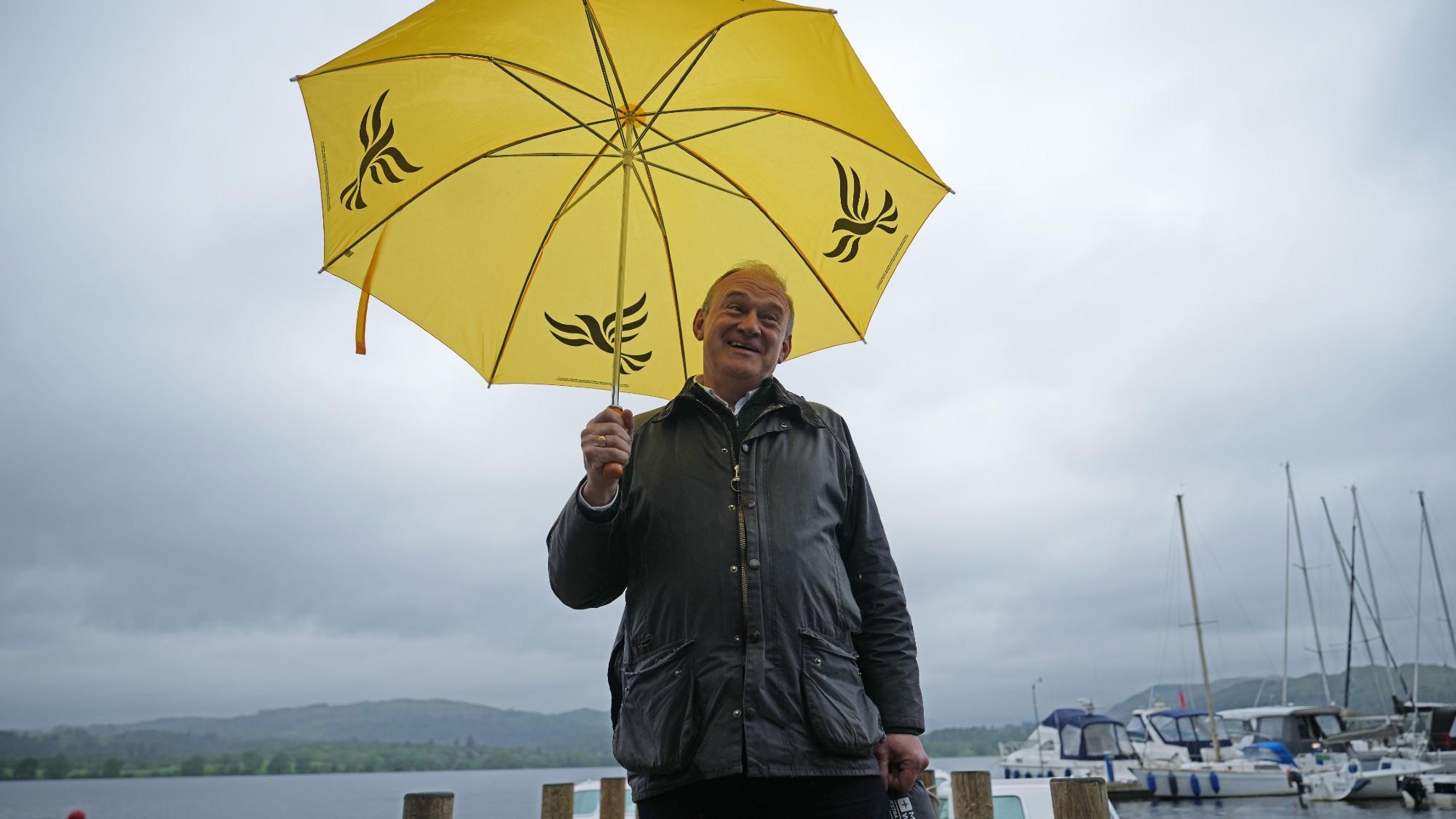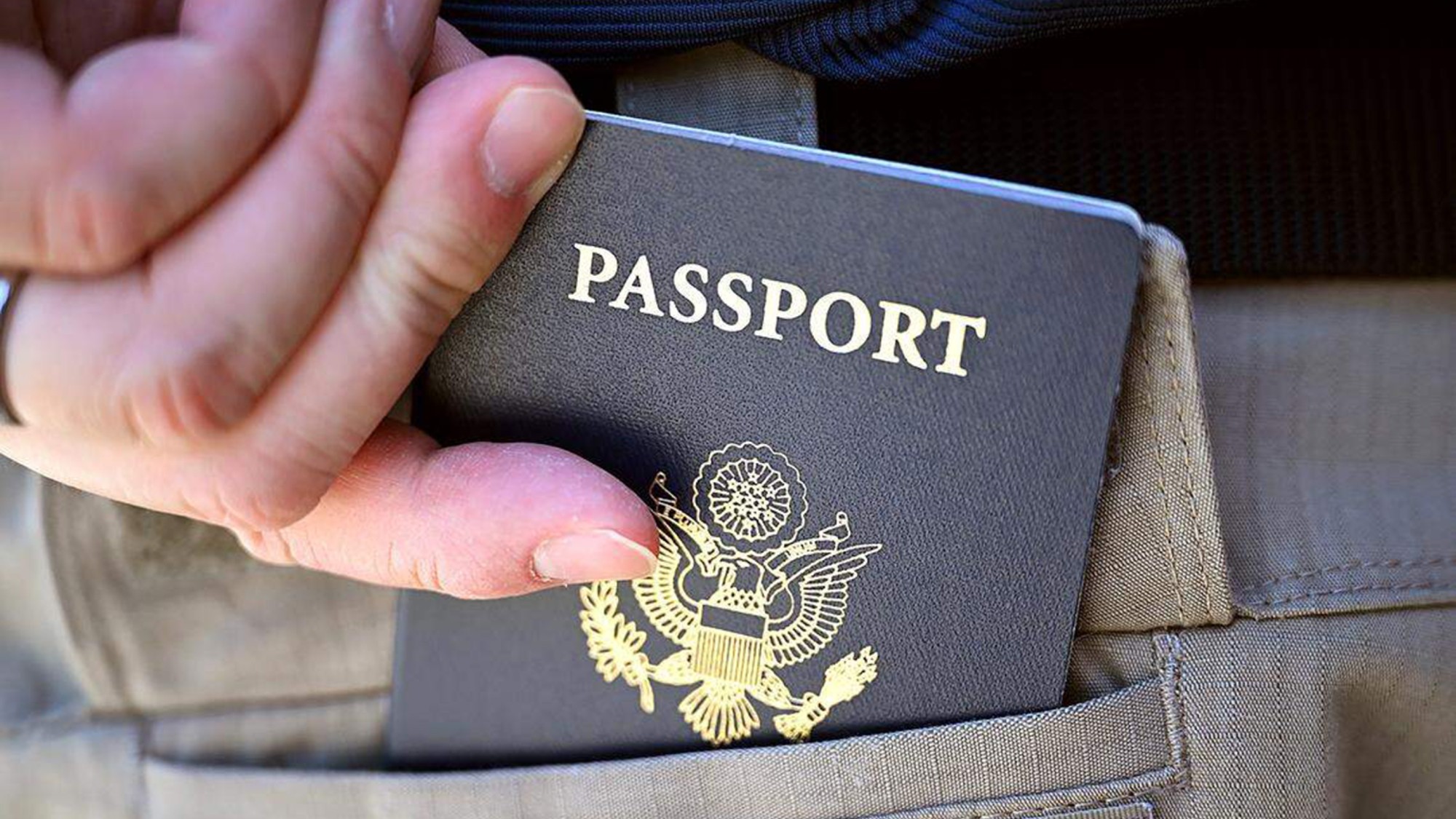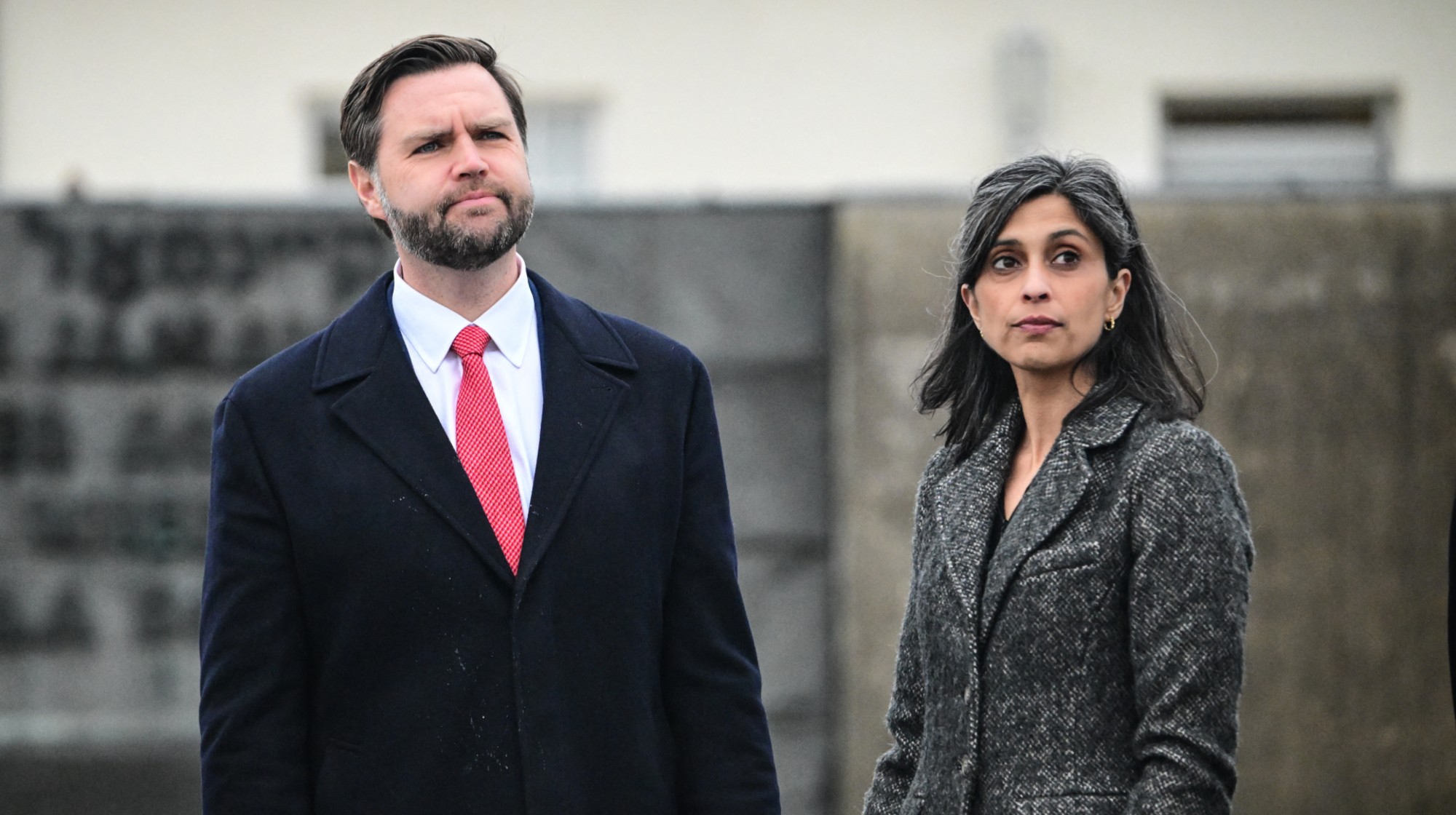What do the Lib Dems stand for?
Personal care policies and campaign stunts as party targets more than 50 'blue wall' Tory seats

A free daily email with the biggest news stories of the day – and the best features from TheWeek.com
You are now subscribed
Your newsletter sign-up was successful
The Liberal Democrats' 2024 election strategy so far could be neatly summed up by the famous Oscar Wilde quote: "There's only one thing in the world worse than being talked about, and that is not being talked about."
As the Tories struggle to cut through with voters and Labour emerges from a week-long internal fight over MP selections, the Lib Dems have been on a "part election campaign, part circus" footing, said Sky News.
In the days since the election was announced, leader Ed Davey has been photographed falling off a paddleboard in the Lake District, going down a water slide in Somerset and cycling with his legs akimbo in Wales. While leaving the party and its leader open to ridicule and what The New Statesman called a "low point in the lofty history of British liberalism", the stunts are "very deliberate", said Sky News. They are "designed to force the Lib Dems onto the agenda where it would be easy for them to be overshadowed by Labour and the Tories".
The Week
Escape your echo chamber. Get the facts behind the news, plus analysis from multiple perspectives.

Sign up for The Week's Free Newsletters
From our morning news briefing to a weekly Good News Newsletter, get the best of The Week delivered directly to your inbox.
From our morning news briefing to a weekly Good News Newsletter, get the best of The Week delivered directly to your inbox.
What do the Liberal Democrats stand for?
For decades, the Lib Dems offered "old-fashioned liberalism to those who wanted it", said The Economist. They pioneered the "politics of local issues" and for everyone else "offered a protest vote: they were the 'none-of-the-above party', a superior alternative to spoiling your ballot paper".
In past elections, they have successfully grabbed attention by tapping into currents of dissatisfaction with one or both of the main parties – most notably opposing both the Iraq War and Brexit.
Kicking off the Lib Dem campaign in the ultra-marginal constituency of Cheltenham, Davey laid out the core pledges to "repair our health and care system, restore the economy, end the sewage scandal and secure a fair deal for people" – the party's campaign slogan.
With no obvious hot-button issue putting them at odds with either Labour or the Tories this time round, the campaign stunts are a bid to draw attention to key party policies. For instance, the paddleboarding incident was tied to tackling England's sewage crisis, while the water slide was supposedly related to plans to put mental health experts in every school by increasing education funding per pupil above the rate of inflation every year.
A free daily email with the biggest news stories of the day – and the best features from TheWeek.com
What policies are they proposing?
The party has announced free personal care for older and disabled people in their homes in a bid to ease the pressure on hospital beds in England. Currently, only people with an income of less than £23,250 can get help with the costs of home care. Davey also wants to introduce a carer's minimum wage, £2 above the standard minimum wage, to attract more people to the sector.
To help with the cost of living, the Lib Dems are proposing a one-off windfall tax on the super-profits of oil and gas producers to help with energy bills. They have pledged to recruit 8,000 more GPs if elected, part of a five-year plan aimed at fulfilling their long-standing ambition to ensure patients can see a GP within seven days.
Like Labour, they plan to scrap the Tories' most controversial anti-immigration measures and use the money saved to tackle people-smuggling, trafficking and modern slavery. They also want to lower the voting age to 16, as well as advocating for proportional representation.
Fairness is also at the centre of the party's push to repair political and economic ties with Europe, said The House, though this does not as yet include calling for a referendum on rejoining the EU.
Other policies include plans to freeze rail fares and to make 10 English Premier League football matches per season available on free-to-air channels.
This "vibes-based electoral strategy" may pay dividends, said The New Statesman, but it shows the Lib Dems "in their current form are unambitious lightweights".
Like many centre-left parties across the West, their "lack of imagination is cloaked in tweeness", as demonstrated by their plan to tackle Britain's polluted rivers by appointing local environmental experts on water companies' boards rather than the more radical approach of renationalising water companies altogether.
How will they fare in the election?
While the Lib Dems have at times polled over 20% at a general election, the UK's first-past-the-post system means their vote share is too thinly spread across the country to return a large number of MPs to Westminster.
While they are currently hovering just under 10% nationally, "this election – which for many voters is mainly about kicking the government – should see the Lib Dems benefit from tactical voting among Labour supporters in seats where they are the main challengers to the Tories", said The Economist.
A leaked document published by The Independent has revealed that the party is set to launch a massive tactical voting push in more than 50 Tory seats, including Chancellor Jeremy Hunt's constituency in Godalming and Ash in Surrey.
The initiative, called "Operation 1997" after the 1997 election campaign when the party won 46 seats as a result of tactical voting, will target Labour voters in the so-called Blue Wall and could deliver 51 Lib Dem gains, according to the latest MRP poll by Electoral Calculus.
The Telegraph said the party is specifically "targeting older voters in seats where the number of pensioners being sucked into paying income tax is higher than the Tory majority" and is preparing to "flood these seats with targeted mailings and leaflets".
"There are plenty of votes to be had among traditional low-tax, small-c conservatives who dislike what has happened to the Tory party," said The Economist, "but after a few years in the wilderness" the Liberal Democrats must deal with the problem of voter recognition. "Hence, perhaps, all the clowning around."
-
 Political cartoons for February 15
Political cartoons for February 15Cartoons Sunday's political cartoons include political ventriloquism, Europe in the middle, and more
-
 The broken water companies failing England and Wales
The broken water companies failing England and WalesExplainer With rising bills, deteriorating river health and a lack of investment, regulators face an uphill battle to stabilise the industry
-
 A thrilling foodie city in northern Japan
A thrilling foodie city in northern JapanThe Week Recommends The food scene here is ‘unspoilt’ and ‘fun’
-
 How ‘Manchesterism’ could change the UK
How ‘Manchesterism’ could change the UKThe Explainer The idea involves shifting a centralized government to more local powers
-
 ‘Dark woke’: what it means and how it might help Democrats
‘Dark woke’: what it means and how it might help DemocratsThe Explainer Some Democrats are embracing crasser rhetoric, respectability be damned
-
 San Francisco tackles affordability problems with free child care
San Francisco tackles affordability problems with free child careThe Explainer The free child care will be offered to thousands of families in the city
-
 The Mint’s 250th anniversary coins face a whitewashing controversy
The Mint’s 250th anniversary coins face a whitewashing controversyThe Explainer The designs omitted several notable moments for civil rights and women’s rights
-
 US citizens are carrying passports amid ICE fears
US citizens are carrying passports amid ICE fearsThe Explainer ‘You do what you have to do to avoid problems,’ one person told The Guardian
-
 Inside Minnesota’s extensive fraud schemes
Inside Minnesota’s extensive fraud schemesThe Explainer The fraud allegedly goes back to the Covid-19 pandemic
-
 Trump wants to build out AI with a new ‘Tech Force’
Trump wants to build out AI with a new ‘Tech Force’The Explainer The administration is looking to add roughly 1,000 jobs
-
 JD Vance wades into choppy religious waters about wife Usha
JD Vance wades into choppy religious waters about wife UshaTHE EXPLAINER By emphasizing his hope that the Second Lady convert to Christianity, the vice president is inviting controversy from across the religious spectrum